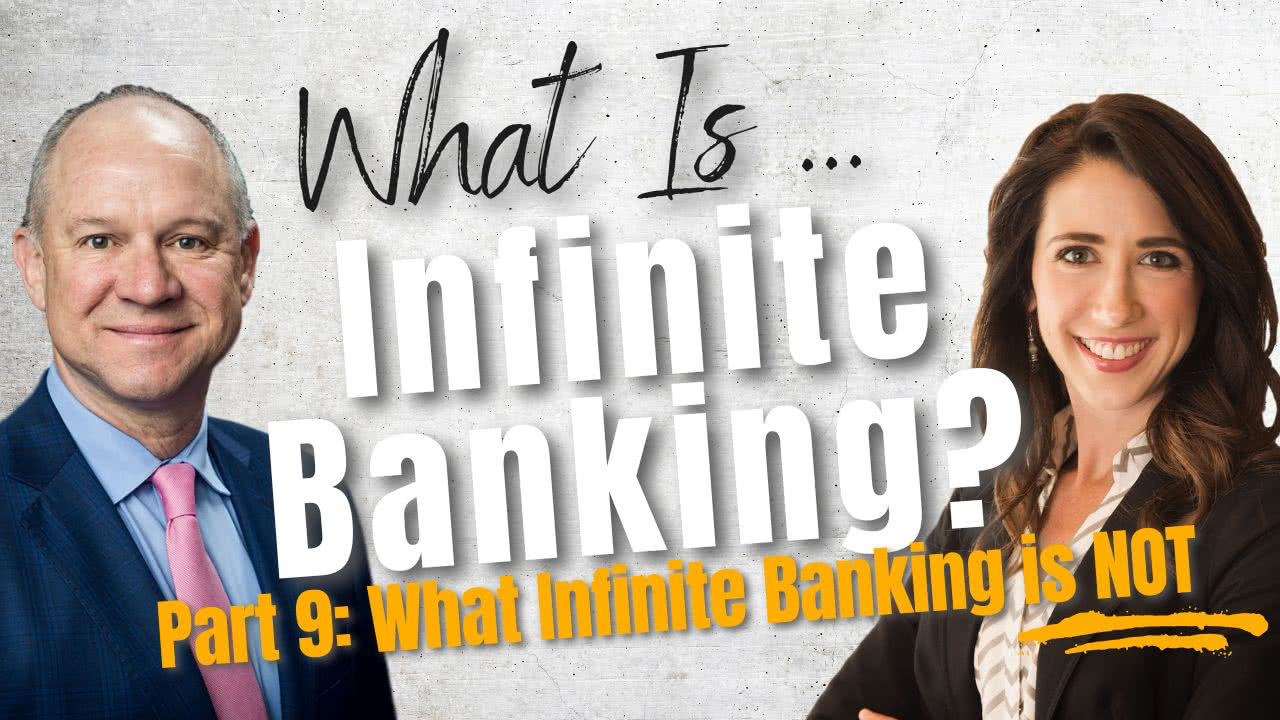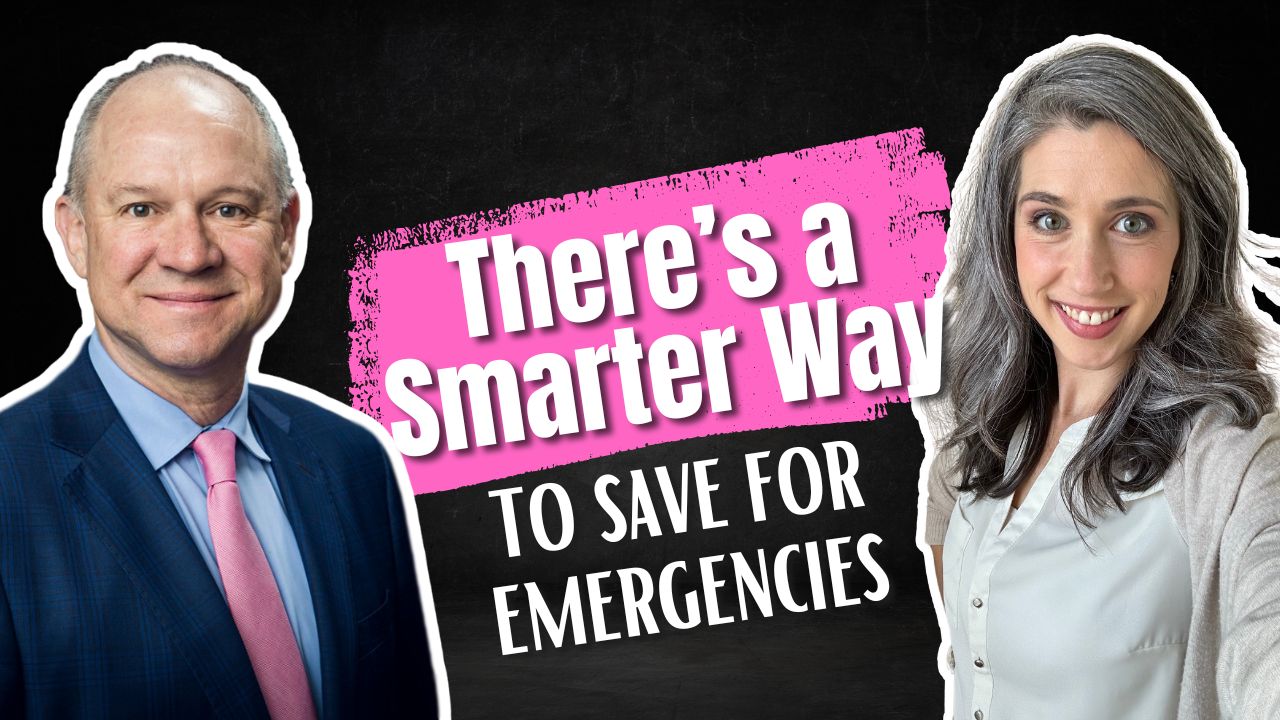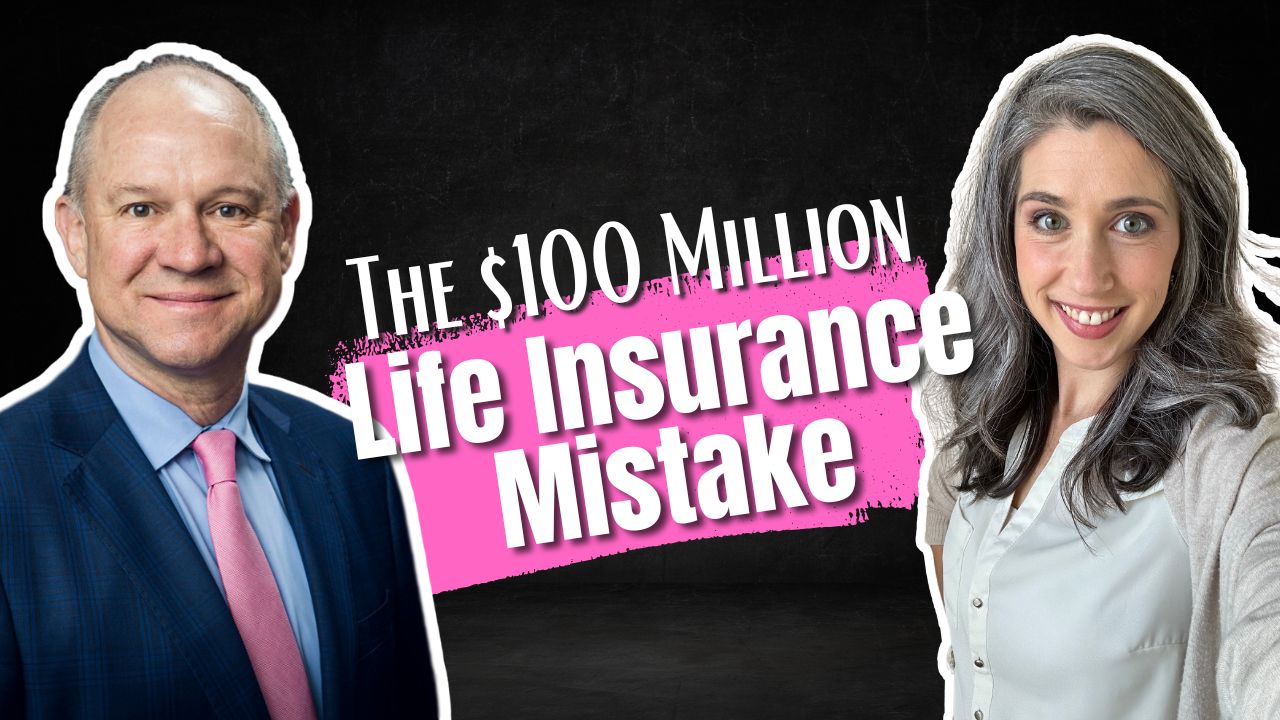
What is the Infinite Banking Concept? Part 9: What Infinite Banking is NOT
Have you heard about Nelson Nash, Infinite Banking, and Becoming Your Own Banker … and want to learn more? Or maybe you’re already using Infinite Banking but would like to be able to explain it better to your spouse, parents, children, business partner, or friends.
Today, we’re unpacking the fundamentals of the Infinite Banking Concept and discussing what Infinite Banking ISN’T.
Podcast: Play in new window | Download (Duration: 51:38 — 59.1MB)
Subscribe: Apple Podcasts | Spotify | Android | Pandora | Youtube Music | RSS | More
Table of contents
Infinite Banking is NOT: Magic
Sometimes, what gets lost in translation when talking about IBC is HOW it works. While it is a powerful tool when structured properly, it is definitely not magic. Unfortunately, the way some people talk about IBC can make it seem that way, which is a disservice to how well it works from a logical and contractual standpoint.
Life insurance is a contract. Whole life insurance, in particular, tends to be a very beneficial contract. Since it’s permanent insurance, it offers a lot of living benefits. The loan provision, for example, is one such benefit. However, the loan provision is valuable because of the financial principles you can apply, NOT because you’re getting “free money,” nor even necessarily “tax-free” money.
In reality, the loan provision works like any other loan. It just has the added advantage of flexibility, because it’s 100% collateralized by your cash value. Every other seemingly “magic” or “too good to be true” feature of life insurance has a similar explanation. It’s a product that is highly efficient and works well, but it has checks and balances like any other financial product.
[6:50] “This is what Nelson [Nash] knew: that human conditions get in the way… If you don’t have good money habits to begin with… you’re not going to be a good saver either. And that is what the Infinite Banking system is. It’s a place to store or save money. It’s not an investment.”
Infinite Banking IS: A Long-Term Habit, Skill, and System
In reality, Infinite Banking is a long-term strategy to employ by way of whole life insurance. To put that in different terms, whole life insurance is a savings vehicle. Infinite Banking is the strategy for saving and using your money.
The reason IBC works so well is that it rewards good habits. The first habit is one of saving: by paying premiums, you increase your equity in your insurance policy. This equity is called cash value.
The next good habit is paying down your debt. When you leverage your policy to make a purchase, you benefit by making regular loan payments. You free up capital to use, and you can even apply some of that loan payment as PUAs that increase your cash value. All the while, you continue earning interest and dividends because you’re using a system that puts you in control.
Your whole life insurance policy is the place you put your cash until you have somewhere to deploy it. It’s a system that makes your savings more efficient, but you have to have those good habits already. That way, you can access and use your capital.
The Importance of Long-Term Thinking
The tether that ties the entire system together is long-term thinking. To truly reap the benefits of an IBC policy, you have to set your sites on the long game. That means considering how your actions today can affect your future self in 30 to 40 years or more. Saving, paying loans, and creating a wealth system can all have positive impacts. Not doing those things can leave major holes in your personal economy. And more importantly, if you don’t adopt long-term thinking in your use of an IBC policy, you may struggle to see the results you want.
The policy you have can only work as well as you are able to manage it. That means making choices with the long-term in mind.
[19:40] “What we really want you to focus on is the long-term growth of the policy, and what it’s going to do over your lifetime, not just what it’s going to do tomorrow in terms of early cash build-up.”
Infinite Banking is NOT: A Get Rich Quick Scheme
[28:00] “Anything in the world that is worth achieving, and that you will make yourself proud of for doing, does not come [without hard work]. Not marketing, not building a successful business, not raising children, not having a good marriage, not having a healthy body., None of those things come by magic bullets.”
Infinite banking is not a get-rich-quick scheme. It’s a process that requires discipline. And if you’re looking for a “magic bullet,” IBC is probably not for you. It requires work, dedication, and good habits.
How Should You Split Your Premium?
When talking about IBC, it’s common to hear the terms “10/90 split” or “40/60 split.” These are referring to how the premium is structured. There’s base premium and there are PUAs. The base premium is money that you apply to the face amount of your death benefit. On the other hand, PUAs (paid-up additions) are like micro-insurance policies that are added to your base policy. They’re considered “fully paid-up,” and therefore increase your cash value AND your death benefit.
The split refers to how much base premium you pay vs. how much PUA. Commonly, IBC policies are a 10/90 split, because it boosts your early cash value. Since a PUA buys a small amount of death benefit, you get that equity right away, rather than over time, like your base premium. Generally, a 40/60 split prioritizes early death benefit, because you can get a higher initial death benefit with a higher base premium.
This is a general rule of thumb, however, because it will depend on your personal economy, your age, and your health, among other factors.
Can You Pay Premiums with Cash Value?
The short answer is, yes, you can. However, this shouldn’t be your “plan.” This type of structure won’t magically hack your policy to create free money. Instead, this can be considered an option when all other options have been exhausted, but you’d like to keep your insurance intact.
The reason it doesn’t work is primarily that in order to leverage that cash value for premiums, you’d either have to take a loan or withdraw the funds. If you take a loan, you’re obviously accumulating an interest cost over time. If you withdraw the funds, you lost the advantage of uninterrupted compounding interest.
Ultimately, you want to have good money habits. By paying premiums, you set yourself up to have good long-term habits first.
[45:00] “I will guarantee you that if you move forward with wisdom, and with good insight, and with somebody who knows what they’re doing you will—in 10 years or 20 years—look back and say thank you to yourself today.”
Book A Strategy Call
Do you want to coordinate your finances so that everything works together to improve your life today, accelerate time and money freedom, and leave the greatest legacy? We can help! Book an Introductory Call with our team today https://themoneyadvantage.com/calendar/, and find out how Privatized Banking, alternative investments, or cash flow strategies can help you accomplish your goals better and faster. That being said, if you want to find out more about how Privatized Banking gives you the most safety, liquidity, and growth… plus boosts your investment returns, and guarantees a legacy, go to https://privatizedbankingsecrets.com/freeguide to learn more.
Emergency Fund Alternatives: Liquidity That Protects Your Family—Without Sacrificing Growth
The Day the “Emergency Fund” Met Real Life Rachel here. Many tell us the same story: “I saved the emergency fund, but I’m worried I’m losing ground to inflation and missed opportunities.” Because for most people, the “emergency fund” is a lonely pile of cash—stuck in a corner doing next to nothing. It feels safe,…
Indexed Universal Life Lawsuit: Kyle Busch vs Pacific Life—and the Lessons Every Family Needs
Why the Indexed Universal Life lawsuit is a wake-up call The headlines about the Kyle Busch vs Pacific Life indexed universal life lawsuit sparked the same question I hear from thoughtful families: is my policy designed to serve me, or to serve a sales incentive? This isn’t tabloid noise. It’s a real-world reminder that choices…




